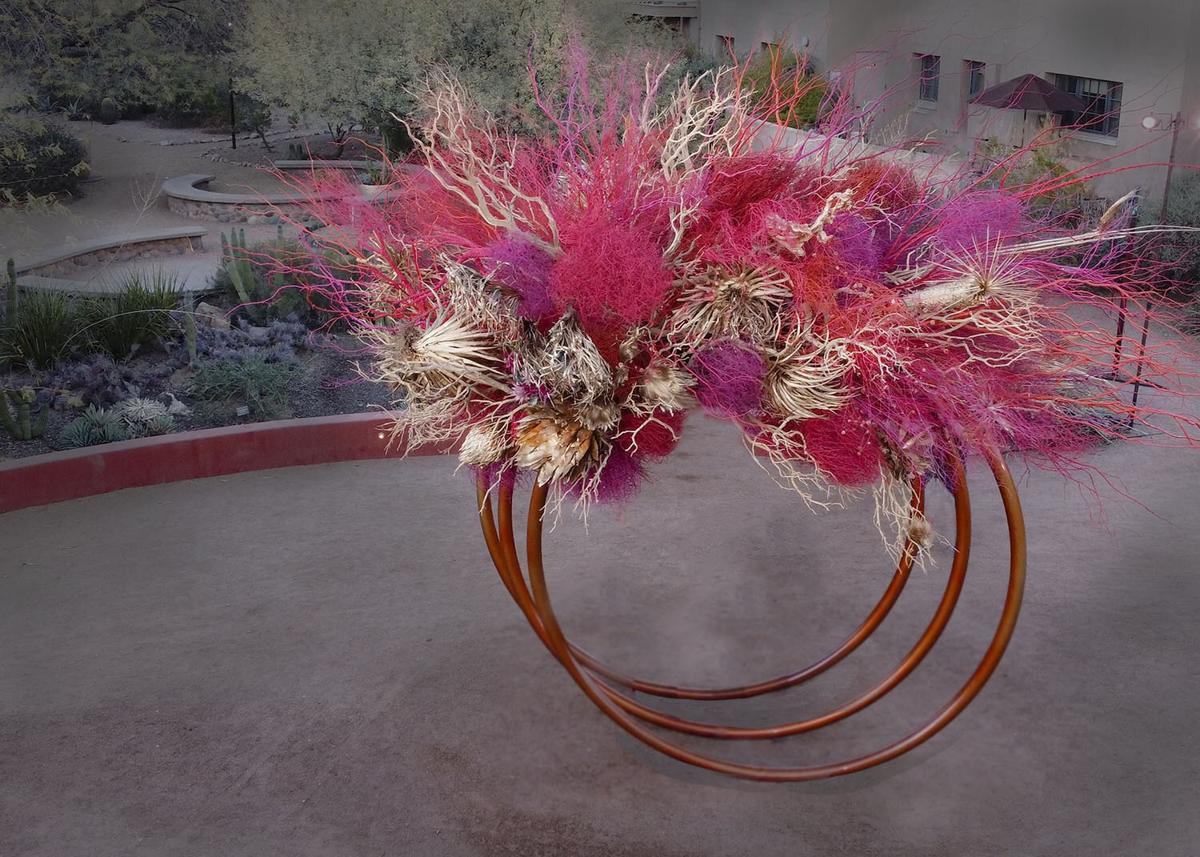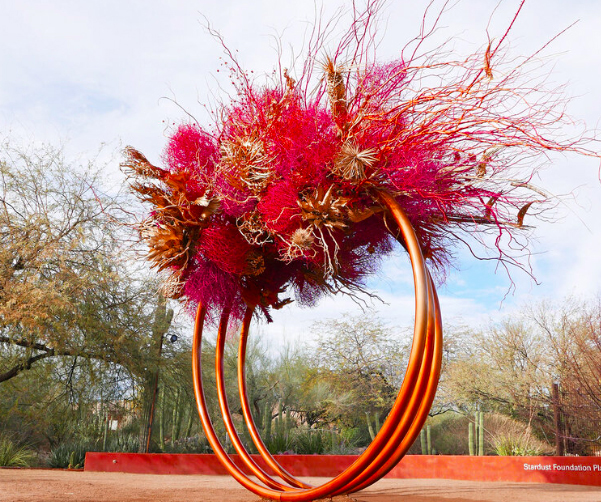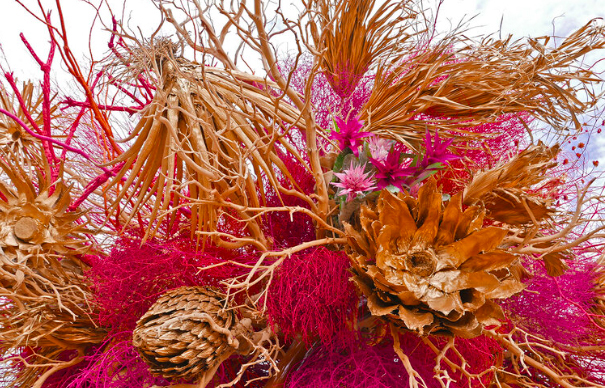January 3: Sorrow and Sighing Will Be No More
♫ Music:
Day 32 - Wednesday, January 3
Title: SORROW AND SIGHING WILL BE NO MORE
Scripture: Isaiah 35:1–10 (NKJV)
The wilderness and the wasteland shall be glad for them, and the desert shall rejoice and blossom as the rose; it shall blossom abundantly and rejoice, even with joy and singing. The glory of Lebanon shall be given to it, the excellence of Carmel and Sharon, they shall see the glory of the Lord, the excellency of our God. Strengthen the weak hands, and make firm the feeble knees. Say to those who are fearful-hearted, “Be strong, do not fear! Behold, your God will come with vengeance, with the recompense of God; He will come and save you.” Then the eyes of the blind shall be opened, and the ears of the deaf shall be unstopped. Then the lame shall leap like a deer, and the tongue of the dumb sing. For waters shall burst forth in the wilderness, and streams in the desert. The parched ground shall become a pool, and the thirsty land springs of water; in the habitation of jackals, where each lay, there shall be grass with reeds and rushes. A highway shall be there, and a road, and it shall be called the Highway of Holiness. The unclean shall not pass over it, but it shall be for others. Whoever walks the road, although a fool, shall not go astray. No lion shall be there, nor shall any ravenous beast go up on it; it shall not be found there. But the redeemed shall walk there, and the ransomed of the Lord shall return, and come to Zion with singing, with everlasting joy on their heads. They shall obtain joy and gladness, and sorrow and sighing shall flee away.
Poetry & Poet:
“The City Limits”
by A.R. Ammons
When you consider the radiance, that it does not
withhold
itself but pours its abundance without selection
into every
nook and cranny not overhung or hidden; when
you consider
that birds' bones make no awful noise against the
light but
lie low in the light as in a high testimony; when you
consider
the radiance, that it will look into the guiltiest
swervings of the weaving heart and bear itself
upon them,
not flinching into disguise or darkening; when
you consider
the abundance of such resource as illuminates
the glow-blue
bodies and gold-skeined wings of flies swarming
the dumped
guts of a natural slaughter or the coil of dung
and in no
way winces from its storms of generosity; when
you consider
that air or vacuum, snow or shale, squid or wolf,
rose or lichen,
each is accepted into as much light as it will take,
then
the heart moves roomier, the man stands and looks
about, the
leaf does not increase itself above the grass, and
the dark
work of the deepest cells is of a tune with May
bushes
and fear lit by the breadth of such calmly turns
to praise.
THE WAY OF THE GARDEN
What do I do with all my hopeless idealism?
It creeps into every area of life: my relationships, career, church. I dream. And dreaming has a place, a purpose. But sometimes it robs me. I search endlessly for the “perfect fit,” get lost in the exhilaration of “having found it,” lapse into a season of frustration as I try to modify newly discovered shortcomings, and crash into eventual disillusionment. I allow my dissatisfaction to narrate my experience and motivate my behavior.
But the disorientation created by the rift between what is and what I wish were has the potential to become a gift. The gift of wilderness. The wilderness is an isolated, lonely place. But scripturally, it’s also a place where people—from Moses to Israel to David to John the Baptist—commune with God and return different. Why?
Here’s my theory: The desert teaches me to receive. Confronted by the reality of my own fearfulness, weakness, blindness, and inability to hear, walk, or speak as I was created to, I become keenly aware of my neediness. I discover the problem was never my unideal circumstances. The problem is me. I cry out for God to “come and save me,” without stipulating how. I learn humility.
On my knees, I know what to do with my idealism. I name my ideals for idols and surrender them to an iconoclast God. When I do, I encounter the depths of his kindness. For, surrendered, I begin to taste the very joy I was trying to architect. The wilderness prepares me to live in his Garden—and then becomes it.
Notice the name of the most prominent feature in the wilderness-turned-garden: the Highway of Holiness. In the better Kingdom, the way to everlasting joy, where sorrow and sighing flee away and life erupts from every corner, is holiness. Those who walk the way of holiness know the narrow Way leads to Life.
For having given up clinging to my way, I can receive the riches of God’s Way. I can “stand and look about” and glimpse outrageous grace bursting forth. I can break free from the fear of my lack of control and give thankful praise for the goodnesses, great and small, piled into my open hands each day. I can marvel at being bathed in “as much light as [I] can take” and find my heart grows lighter, “roomier.”
And my newly liberated eyes empower me to look forward with hope, for gratitude teaches me to anticipate goodness even alongside badness. It nurtures in me the certainty that I will see the goodness of God in the land of the living, even as I groan inwardly for the redemption of the world.
I don’t pursue holiness to measure up, earn love, or out-perform anyone else. I pursue holiness because it expands my capacity to enjoy what is truly good. It enables me to savor the riches of a better Kingdom on earth. It is more joy here and now.
It’s almost as if the Lord who asks our obedience has had our good at heart all along.
Prayer
Gracious Lord,
Help me to release my desire for security, affection, and control and embrace this day as it truly is. Give me eyes to see your Light pouring forth even in moments I wouldn’t have chosen. And help me to receive the gifts of the wilderness as I learn to walk the Way of Holiness.
Amen.
Hannah Williamson
Alumna of Biola University (‘18)
and Torrey Honors College
Writer
For more information about the artwork, music, and poetry selected for this day, we have provided resources under the “About” tab located next to the “Devotional” tab.
About the Art:
Wind
by Waterlily Pond
16 ft. tall
6000 lb. steel structure
200 creosote and Palo Verde branches
50 tumbleweeds
60 manzanita branches
30 dry desert plant specimens
50 bromeliad plants
Desert Botanical Garden
Phoenix, Arizona
Inspired by the tumultuous winds and dust storms that move across the desert landscape, Wind is a floral sculpture composed of a myriad of plant materials, including dried desert plant material collected from Desert Botanical Garden in Phoenix, Arizona. Organic materials are transformed by adding color, highlighting, and reimagining the shapes and textures of the desert. Tree branches, yucca stalks, tumbleweeds, and bromeliads are added to the sculpture during the installation process to create wild, gestural movement mimicking wind patterns.
About the Artist:
Waterlily Pond is a full-service floral art and event design studio, working in the San Francisco Bay, Napa Valley, and Carmel areas of California, as well as nationally and worldwide. They are a boutique firm with bold aspirations, recognized as one of the best high-end florists and designers in San Francisco. Their team of floral designers, artisans, and builders creates signature suspended chandeliers, floral sculptures, and many custom fabrications. https://www.waterlilypond.com/wind
https://www.waterlilypond.com/
About the Music #1:
“The Wilderness and the Solitary Place III: Then Shall the Lame Leap”
from the album Ascribe Unto the Lord - Sacred Choral Works by Wesley
Lyrics #1:
Then shall the lame man leap as an hart,
And the tongue of the dumb sing:
For in the wilderness shall water spring out,
And streams in the dessert.
And a highway shall be there,
It shall be called the way of holiness.
The unclean shall not pass over it.
And the redeemed shall not err.
About the Music #2:
“The Wilderness and the Solitary Place IV: And the Ransomed of the Lord”
from the album Ascribe Unto the Lord - Sacred Choral Works by Wesley
Lyrics #2:
And the ransom’d of the Lord shall return and come to Zion.
About the Music #3:
“The Wilderness and the Solitary Place V: And Sorrow and Sighing Shall Flee Away”
from the album Ascribe Unto the Lord - Sacred Choral Works by Wesley
Lyrics #3:
And sorrow and sighing shall flee away.
Amen.
About the Composer for Music #1, #2, & #3:
Samuel Sebastian Wesley (1810–1876) was an English organist and composer. He was the eldest child in the composer Samuel Wesley's second family, which he formed with Sarah Suter, having separated from his wife Charlotte. Samuel Sebastian was the grandson of Charles Wesley. Samuel Sebastian embarked on a career as a musician, and was appointed organist at Hereford Cathedral in 1832. In 1839 he received both his bachelor of music degree and a doctor of music degree from Oxford. He became a professor of organ at the Royal Academy of Music in 1850. Famous in his lifetime as one of his country's leading organists and choirmasters, he composed almost exclusively for the Church of England.
https://en.wikipedia.org/wiki/Samuel_Sebastian_Wesley
About the Performers:
The Choir of St John’s College, Cambridge is one of the finest collegiate choirs in the world—known and loved by millions for its broadcasts, concert tours, and over ninety recordings. Founded in the 1670s, the choir is known for its rich, warm, and distinctive sound, its expressive interpretations, and its ability to sing in a variety of styles. The choir is currently directed by the interim director of music, Dr. Stephen Darlington, MBE.
https://www.sjcchoir.co.uk/
https://www.sjcchoir.co.uk/about/choir
Conductor:
Andrew Mark Nethsingha, FRCO, ARCM (b. 1968), is an English choral conductor and organist. He was appointed organist and master of the choristers at Westminster Abbey in London in 2023, having previously held similar positions at St. John's College, Cambridge, Gloucester Cathedral, and Truro Cathedral.
https://en.wikipedia.org/wiki/Andrew_Nethsingha
Organist:
John Challenger was an organ scholar and the assistant organist at St. John’s between 2008 and 2012. He returned to St. John’s for the Lent term of 2017 to act as director of music during the sabbatical of Andrew Nethsingha. Challenger received his early musical education as a chorister at Hereford Cathedral. Since 2012, he has held the role of assistant director of music at Salisbury Cathedral, where he accompanies the majority of cathedral services on Salisbury’s famous organ, and assists in the running of the cathedral choirs. Most recently, he recorded the album Salisbury Meditation to raise funds for NHS Charities Together.
https://www.hyperion-records.co.uk/a.asp?a=A17792
About the Poetry and Poet:
Archie Randolph Ammons (1926–2001) was an American poet who won the annual National Book Award for Poetry in 1973 and 1993. Ammons wrote about humanity's relationship to nature in alternately comedic and solemn tones. His poetry often addresses religious and philosophical matters and scenes involving nature in a transcendental fashion. Among his major honors are the U.S. National Book Award, the Wallace Stevens Award from the Academy of American Poets, and a MacArthur Fellowship. Some of Ammons' poems are very short, one or two lines only, a form known as “monostich,” while others are hundreds of lines long, and sometimes are composed on adding-machine tape or other continuous strips of paper. Ammons taught at Cornell University in Ithaca, New York, for thirty-four years.
https://en.wikipedia.org/wiki/A._R._Ammons
https://www.poetryfoundation.org/poets/a-r-ammons
About the Devotion Author:
Hannah Williamson
Alumna of Biola University (‘18)
Torrey Honors College
Writer
Hannah Williamson is a follower of Jesus. With her penchant for the written word, she enjoys exploring topics around prayer, formation, community, and the riches of life with Jesus. Her favorite things include reading good books (and talking about them), taking long walks, playing with children, and sharing meals with the people she loves.


